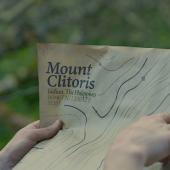My daughter Louisiana is a beautiful genius when it comes to talking and using the monkey bars. But a while back, we had to admit that she was really bad at swimming. There was flailing, a couple of jumps into the shallow end, but ultimately we had wasted eight bucks on her goggles. She needed lessons.
Lessons, as you may remember, are different than school. In school, you progress on a linear track. Grade 1, then grade 2, and assuming there are no major hiccups, on and on through grade 12. But there's all sorts of levels within each grade, from AP History to "guy who eats boogers in French 1."
But when you take lessons, you have to choose a level from the start. You actually have to define how good you are at something. If you're in a novice class, you start with no knowledge. And an expert knows basically everything.
Lou Lou went in right at the bottom, and you'll be happy to know she's progressed to "not constantly almost drowning." But as I sat through those Saturday swim classes, I couldn't help asking, "What about me?" What level am I at all the stuff I do as a grownup?
I looked up "levels of proficiency" on the internet to see if I could figure out where I landed on my main activities. I found a woman named Patricia Benner, who defined five levels of proficiency for nurses to measure their qualifications, but it absolutely applies across industries (and swimming abilities).
They are:
1. Novice
2. Advanced beginner
3. Competent
4. Proficient
5. Expert
So, how good am I?
Getting dressed every day? Competent if slightly wrinkled.
Raising two little girls? Definitely a novice.
Cooking? I'll go for proficient. I know how to make some sauces.
But what about the big one? My job. The thing I get paid to do, and others rely on me to do well. How good am I at being a creative director?
Expert. Obvi. I make things all the time. I own my own agency. I won the … And as our creds deck started appearing slide by slide in my head, that's when it hit me. That's how I figured out the problem with advertising and also how to fix it.
You're welcome.
Experts. Advertising is filled with experts. They've got the excellent sneakers and the advertising scarf, the haircut, maybe the glasses. They talk about it on LinkedIn, in articles like this one, and on the Insta for their side hustle, which strongly suggests if they were taking a lesson they'd sign up for "expert" even if they still needed floaties. Creative professionals are all experts.
But I believe the most important accessory for any modern creative is, without a doubt, a deep and unflinching lack of expertise about everything. Being an expert in today's world is a huge liability. Experts rely on experience they earned doing things that already happened. And no one wants that. In a world that is entirely future focused, earned wisdom is a total drag. It's not about age, it's about curiosity and flexibility. Experts know the answer, but authentic creativity comes from divergent thinking and discovery.
By definition, there are no experts at innovation. Innovation is forging a new path through a foreign jungle using your brain as a machete. It's building a bike while you're riding it, only to realize you should have invented a helmet first. When you're doing things no one has ever seen or done before, that cannot be proven to work until they do, a reliance on old ideas will stop the progress. Expertise is anti-creative, because making something out of nothing requires starting with nothing.
So, what class am I in? I don't want to be with the novices, because they've never even been in the water. There's irrational fear. There's figuring out how to get your bathing suit on and learning how to blow bubbles. But on the other end, proficient and competent feel like insults. It's like saying you can do something just well enough to not have it confused with doing something else.
I'm an Advanced Beginner.
I know what swimming is. I've gotten a little water in my mouth. But I'm here to learn. Advanced Beginner is the class that is all about figuring it out. It's a class that expects you to fail up. It's about discovery, everything is new and a little familiar.
So, moving forward, you can find me with the Advanced Beginners.
If creativity and innovation are your thing, this is the best place to be. In our class, we have to listen hard and pay attention. We watch each other, and we aren't afraid to ask for help when we need it. In the Advanced Beginner class, there are no writers or creative technologists or art directors, because all the best ideas are unfamiliar and the things we need to know are things we haven't learned yet.
We're brave, a little scared, and even though I can go in the deep end with you, there's no way I'm taking these floaties off.










